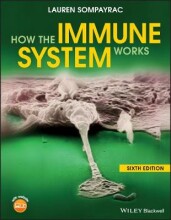T12: Heart and lung toxicity
14 important questions on T12: Heart and lung toxicity
What are toxic effects on the heart?
- autonomic nervous system
- Ca2+ fluxes
- membrane functions
- oxygen supply
- energy supply
- oxidative stress
Obligatory nose breathers:
What are respiratory toxic effects?
- effects on gas exchange in the lungs
- interactions with O2/CO2 transport in the blood
- disruption of respiration at cellular level.
- Higher grades + faster learning
- Never study anything twice
- 100% sure, 100% understanding
Lung toxicity: effects on ventilation or gas exchange in the respiratory organs
-pulmonary oedema: accumulation of moisture in pulmonary alveoli -> distance traveled by gas molecules through alveocapillary membrane is lengthened.
-pulmonary fibrosis: increase in connective tissue and diminished lung function
-lung emphysema: chronic toxic effect
-lung cancer
Lung toxicity: interactions with O2/ CO2 transport in the blood
-CO poisoning
Lung toxicity: disruption of respiration at the level of cells
Toxic effects heart: ca2+ fluxes
caffeine -> efflux of Ca2+
metals -> Ca2+ sensitive ATPase
Structural changes in the heart:
-cellular degeneration: necrosis
-interstitial fibrosis: excess fibrous connective tissue
-accumulation of fat globules
-loss of myofibrils
-cytoplasmic vacuolisation
A factor determining how deep gasses can penetrate into the lungs is their
A factor determining how deep particles can penetrate into the lungs is their
Which compounds may cause lung toxicity?
Accumulation of malignant tissue
Which targets direct effects the heart function ?
-effects on Na/K pumps
-effects on oxidative phosphorylation
-effects in the electron transport system in the mitochondria
Which are chemicals known for their heart toxicity?
-digitals glycosides
The question on the page originate from the summary of the following study material:
- A unique study and practice tool
- Never study anything twice again
- Get the grades you hope for
- 100% sure, 100% understanding






























